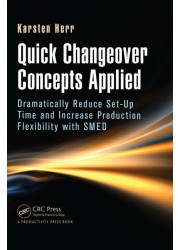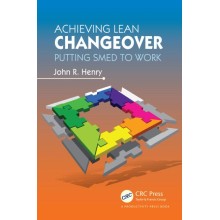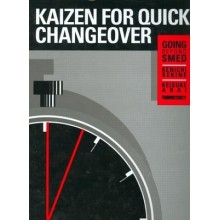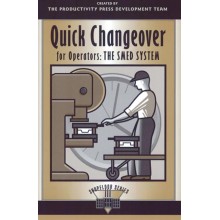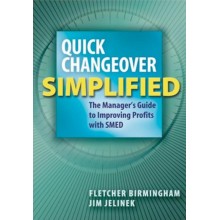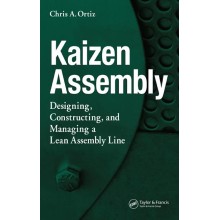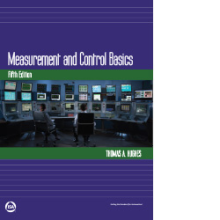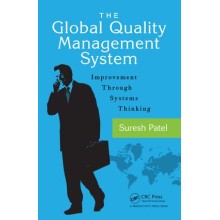Quick Changeover Concepts Applied: Dramatically Reduce Set-Up Time and Increase Production Flexibility with SMED
Quantity:
-
Add to Compare
Shifting from external to internal set-up steps and optimizing your set-up procedure is only the first step in achieving world-class performance. What’s most important is what comes next, cutting down internal set-up times and achieving changeovers that last only a few minutes.
Quick Changeover Concepts Applied: Dramatically Reduce Set-Up Time and Increase Production Flexibility with SMEDprovides a comprehensive overview of changeovers from a strategic, tactical, and operational perspective. It outlines specific strategies that can help readers shorten internal set-up steps through the physical analysis of machine elements. The method presented is the result of a synthesis of Shigeo Shingo’s classic single-minute exchange of die (SMED) methodology with modern engineering techniques.
Providing readers with the understanding required to significantly reduce internal set-up times, the book explains why efficient changeovers are critical to production scheduling. It redefines set-up and set-up time and details a step-by-step method for developing quick changeover methods in a manner where changes can be realized with minimal spending. Properly implemented, the quick changeover concepts presented, can help you reduce set-up times by up to 95 percent.
The book uses language that is easy to understand to make it accessible to all functions along the value stream—from shop floor operators and industrial engineers to machine designers. It introduces the concept of systems engineering, explains the set-up process and its various elements, and addresses the financial aspects of set-up.
Maintaining an analytical focus, the text describes the theoretical details and includes numerous application examples for every step. It also includes an extensive chapter on fasteners and connection material that presents alternative methods to connect elements that can save you valuable time.
Table of Contents
Production Systems in Dynamic Markets
Set-Up in Production
Changeover in Production Scheduling
Faulty Assumptions
Objective
Exception
Definitions
Systems Thinking
The System
Analysis vs. Synthesis
Top-down – Outside-In
Product Portfolio and Process
Strategy
ABC Analysis Product Portfolio Analysis
Process Objective
Standardization
Appropriate Process
Elements of the Set-Up
General Structure of the Set-Up
Areas of the Set-Up
Categories
Internal and External Execution of Tasks
Avoiding Waste
Analysis of a Set-Up
Taking the Video
Video Analysis
Data Analysis
Consequences
Function, Process Force, and Interface Analysis
Design of Machine Elements
Function and Process Force Analysis
Material Choice
Degree of Freedom
Process Forces and Counterforces
Form-Fit before Force-Fit
Divertion of Process Forces
Interface Analysis
Function Integration
Designing Machine Elements and their Interfaces
Mechanical Fastening
Mechanical Fastening Theory
Connections and Fastenings
Alternative Connections and Fastenings
Hose and Cable Connections
Positioning, Setting, and Adjustment
Positioning vs. Adjusting
Adjusting – the Right Way
Control
Organization
Organization of Work Steps
Environmental Organization
Communication
Documentation
Before and After
Financial Aspects
Internal
External
Implementation Examples
Press
Sheet Bending Line
Rollforming Machine
Bibliography
Index
Write a review
Your Name:Your Review: Note: HTML is not translated!
Rating: Bad Good
Enter the code in the box below:
Copyright © 2014 Engineering Standards Bureau. All Rights Reserved.
Developed By Zoom Into Web


